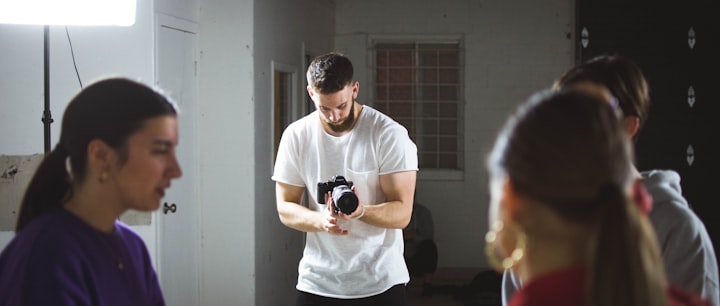I immigrated to the UK for University, but I graduated ... Now what?
10 Steps to become an adult after graduation.

My Graduation from university was probably the most confusing thing ever, especially mentally and emotionally. It was, let's say ... uneventful. I graduated in 2020 when the world was shut, and nothing was happening. It was simply a letter from the University saying `You have completed your course, congratulations ... ` etc.
At that point, it had been three weeks since my last exam, and it would be two months before I started working, which brings me to my first point.
1. Find Employment while you are in university.
Of course, it isn't as simple as it sounds. This can be a painful and scary process if you are not prepared. It is crucial to remember that, as immigrant graduates, we do not have the same amount of opportunities open to us as the rest of our peers. You will only be considered for opportunities offering a tier 2 visa. My advice is as follows:
- Start early: For graduates, the interview process mostly begins around the middle of August, especially for giant corporations that would typically sponsor visas. Getting an opportunity like this would put you at a starting point of £28000 at least (the requirement of minimum pay to qualify for tier 2 sponsorship at the time of writing), which would afford you the stability to start living independently. You must treat this as equal to any other module. This process is not easy!
- Be Patient: There is no guarantee that your applications will pan out. To avoid stress and panic, it is essential to keep your expectations low, review your C.V. frequently, grow your experience and ask for help! A friend of mine had to make 50 applications before his interview panned out into a job. This shouldn't worry you, as everyone has to go through this in one way or another.
- Use University Resources for Career Advice: The best way to get help and professional career advice is to make sure to use the resources that your university offers. Many graduates forget that universities still provide some support to their alumni and might be surprised to discover that their universities have job shops or career offices, which may be just what gets you to your first interview!
I was lucky enough to find an excellent job with a great employer by the time I was graduating (Or receiving my certificate by post, which is infinitely more accurate), but what if I hadn't?
What if you don't get employed by the time you graduate?
DO NOT PANIC. The UK has implemented a very lenient Graduate visa, which permits you two years post-graduation to find employment of any kind, with no capacity on the amount of money you need to earn, the type of employment of the location within the UK provided you follow all legal regulations according to the visa.
2. Make the most of Your Graduate Visa
If you're on a Graduate Visa in the UK, this is your golden ticket to dive into diverse opportunities. Here's a guide to make the most of it:
- Exploring Varied Career Avenues: The beauty of the Graduate Visa is its flexibility. Unlike some visas, there are no restrictions on the type of job you can accept. Whether it's a start-up, an established corporation, or a creative venture, you can delve into any field.
- Upskilling and Training: Make yourself more marketable. Identify gaps in your skills and enrol in short courses or workshops. Websites like Coursera, Udemy, and FutureLearn offer a plethora of options. Consider professional certifications in your field, ensuring you stand out in the crowded job market.
- Networking and Building Connections: Engage with alumni networks and attend seminars, workshops, and other events related to your field. Remember, sometimes it's not just about what you know but who you know. Cultivating meaningful relationships can lead to job referrals and collaborations.
- Considering Further Studies: If you're contemplating diving deeper into academia, this might be an opportune moment. Do some research on scholarships, grants and bursaries available for international students. Some institutions might even offer discounts for alumni.
This is quite an involved topic, and in the interest of keeping this concise, I will leave this here, hoping that even this information will give you some insight into navigating the end of your university days.
Keep an eye out for part 2!






Comments (1)
Love it! ♥️